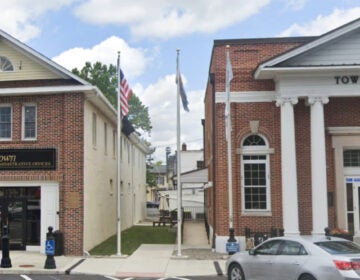Delaware refinery to get billion dollar upgrade
The owners of the Delaware City Refinery have given tentative approval to spend one billion dollars to upgrade the facility.
It’s an early Christmas gift for workers at the once shuttered refinery. PBF Energy’s Board of Directors conditionally gave the go-ahead for the project which will add a mild hydrocracker and hydrogen plant at the site. It’s part of the PBF Clean Fuels Project.
PBF chairman Thomas O’Malley says the upgrades will make Delaware City a world class refinery. “The PBF Clean Fuels Project will ensure the long-term survivability of the Delaware City and Paulsboro (NJ) Refineries in good markets and bad.” But it’s not a done deal yet. The project is contingent on timely federal and state permits that don’t increase the cost to build or operate the new additions. O’Malley cautions, “It is imperative however that we are able to swiftly move with the governmental agencies to get the appropriate permitting in place.”
The upgrade at Delaware City will reduce sulfur content in about 65,000 barrels of oil a day from 2,000 parts per million to less than 15 parts per million, a reduction of 99%. That will translate into a reduction of more than 6,500 tons of sulfur dioxide emissions every year.
To get the work done, PBF estimates it will take more than one million man hours of labor, which translates to hundreds of local construction jobs. Once the project is done, about 50 new permanent jobs would be created.
Delaware Governor Jack Markell says he’s thrilled by the prospect of a billion dollar investment. “When PBF Energy purchased the shuttered Delaware City Refinery, they pledged to run a world-class facility employing hundreds of Delawareans. With the successful restart behind us, PBF is backing that pledge with a one billion dollar investment in the long-term future of the Delaware City refinery.”
The refinery was shut down in 2009 by then-owner Valero, putting hundreds of Delaware workers in the unemployment line. State leaders were able to convince the company not to dismantle the site, while they scrambled to find a buyer. That buyer ended up being PBF Energy, which has already spent millions upgrading the refinery for it’s official restart earlier this year. State leaders joined PBF officials in an official ribbon cutting ceremony in October.
While PBF says the billion dollar investment will reduce sulfur dioxide emissions, the plant was already on track to reduce nitrous oxide emissions. The facility’s new permit will allow for 2,500 tons of NOX emissions per year, that’s half of the 5,000 tons per year under the previous permit. Plant manager Herman Seedorf says that’s the best the refinery has ever achieved. Over the next three to four years, that 2,500 tons of NOX emissions will drop to about 1,650 tons, or about two-thirds of what the refinery had been allowed to emit under previous owners.
Earlier this year, WHYY got an inside look at the refinery as workers prepared for the restart. You can watch that video here.
WHYY is your source for fact-based, in-depth journalism and information. As a nonprofit organization, we rely on financial support from readers like you. Please give today.




